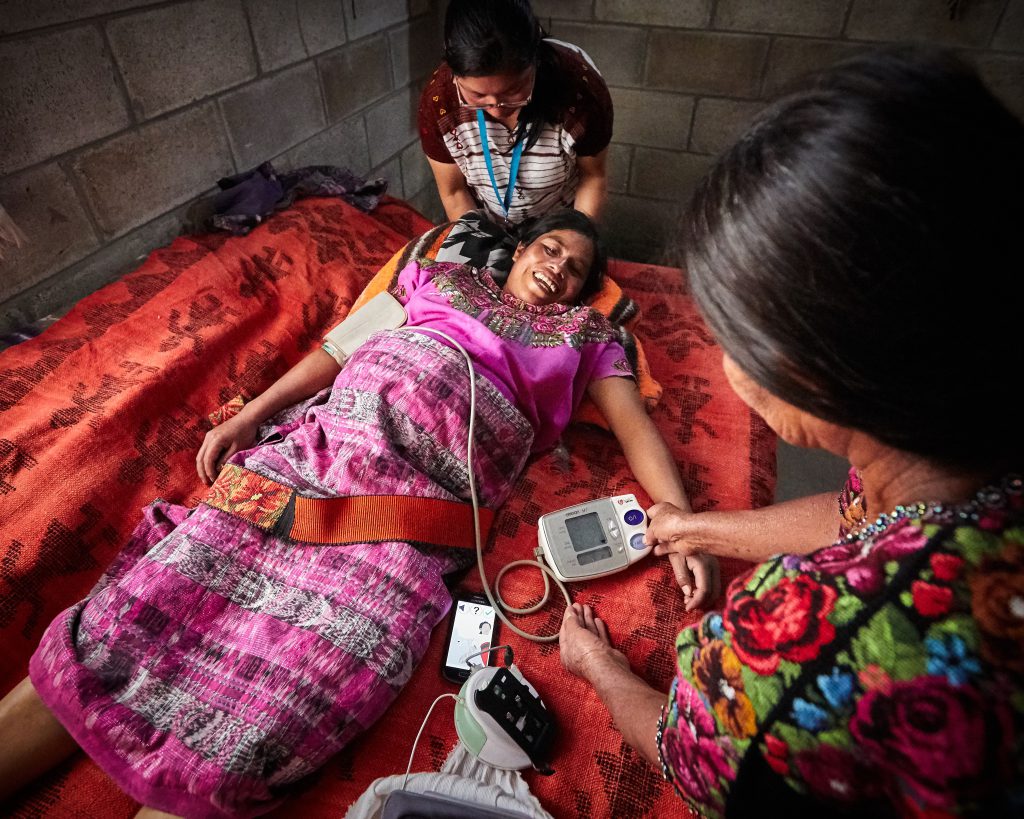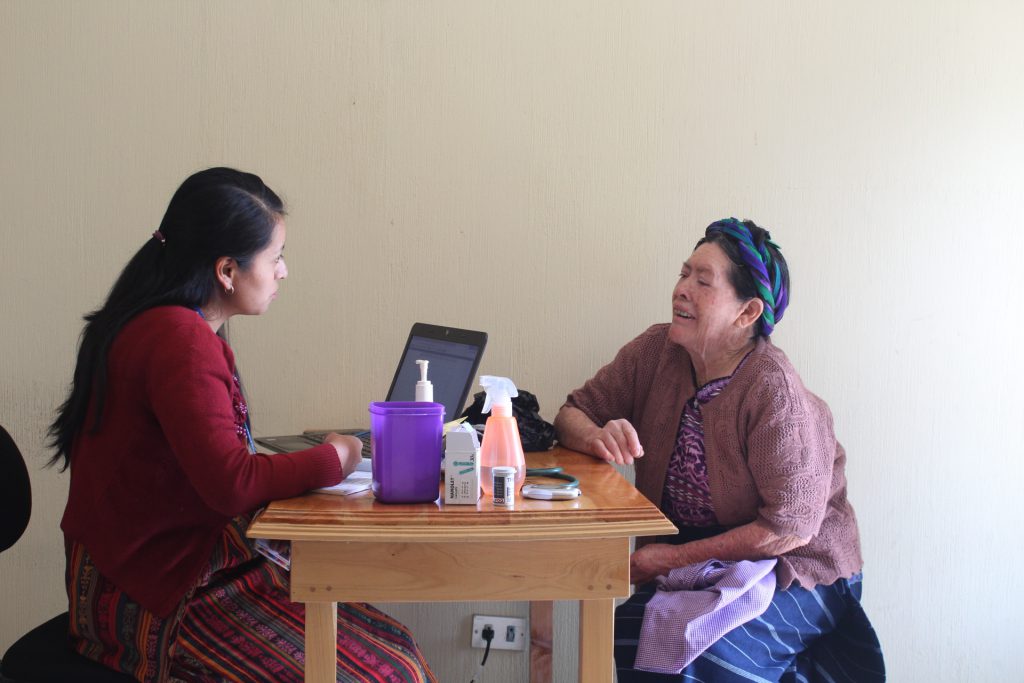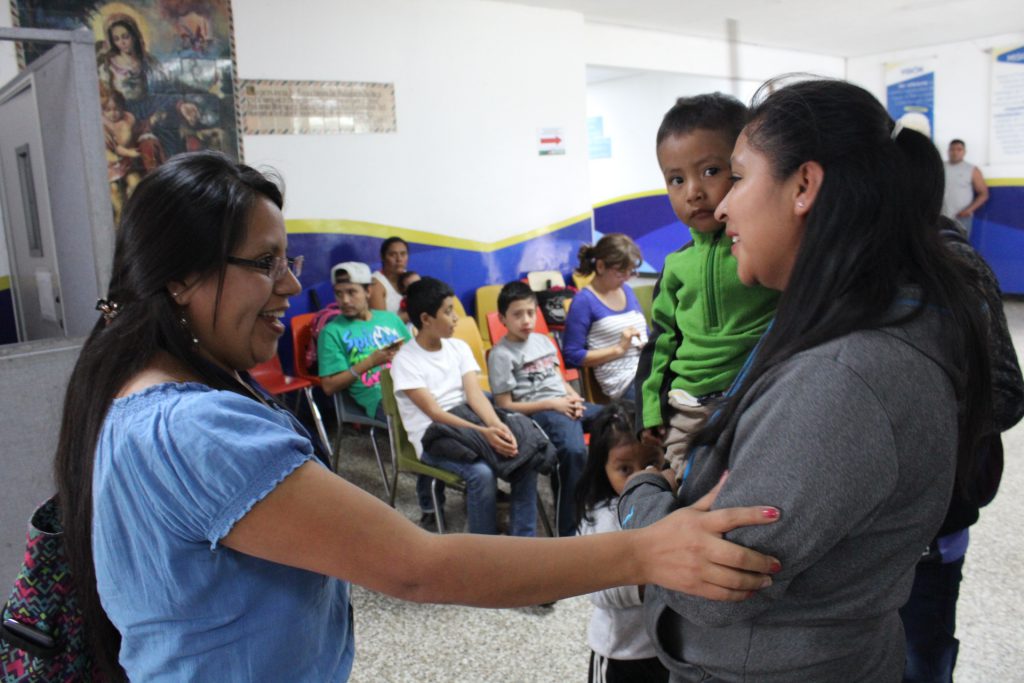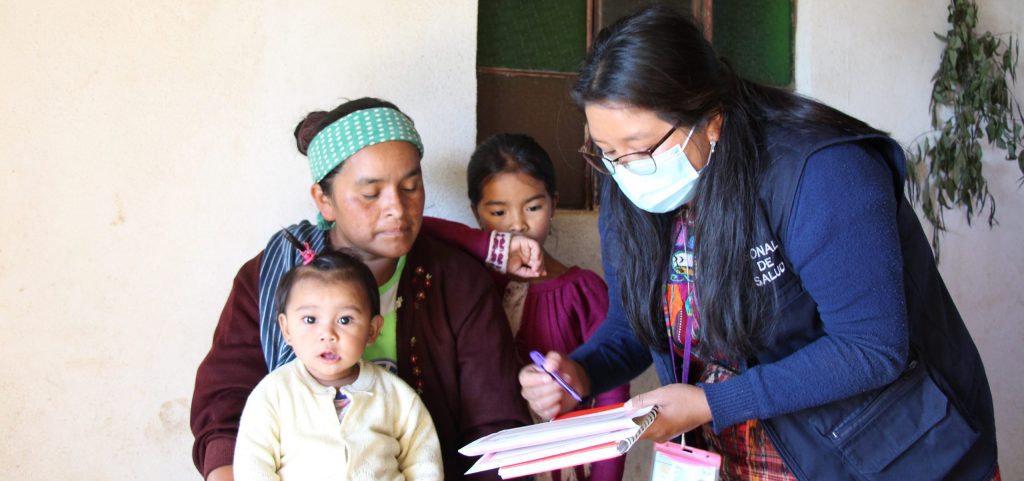
Programs
We provide quality care for patients across the lifespan, from prenatal care for mothers and their babies, to primary care for families, to specialized care for elderly patients with chronic diseases. Across our programs, we partner with our patients in their languages and communities to provide comprehensive solutions to achieve the best possible health and well-being. Learn more about how our work aligns with the United Nations’ Sustainable Development Goals here.
Primary Health Care
High Quality Care for All
In this video, physician Peter Cooch discusses our approach to capacity building.
We work to strengthen primary healthcare in rural Guatemala. This means partnering with indigenous communities to identify health needs and to provide home-based and community-centered care for the health conditions that matter to them. We believe that primary care must be about both prevention and treatment. It must include both medical care and health education. And it must include commitments to those who suffer from long-term illnesses and disabilities. We train and support a large group of front-line health workers, including community health workers and nurses. We are a member of the international Community Health Impact Coalition and endorse their best practices related to community health work. We have special experience in diabetes, kidney disease, cancer, disability, and child malnutrition, and most of our resources are available by request.
Early Childhood Development and Nutrition
Investing in Our Future
We are leaders in the field of early child development and nutrition.
We have developed and tested ground-breaking programs to improve children’s diet and in collaboration with their caregivers and we integrate these programs with interventions to foster early development, such as the World Health Organization / UNICEF’s Care for Child Development package and the international Guide for Monitoring Child Development.
We advise other organizations in Guatemala how to implement their own child nutrition programs, and we provide technical advice on how best to monitor and evaluate programs for impact on child development and growth. We are a member of the Alliance for Nutrition in Guatemala, a network of civil society and private sector organizations working to advance national policy around child nutrition. In this role, we work closely with the Secretariat for Nutrition and other government entities. Several projects we have helped to develop include Conectate, a national resource mapping initiative for nutrition, and Nútreme, a national ad campaign.
Our expert clinicians also provide consultative care for children with developmental challenges or with complex illnesses such as cerebral palsy, Down syndrome, and seizure disorders.
Maternal-Infant Health
Saving Lives

Many maternal and infant deaths can be avoided with timely care. We are experts in using technology on smart phones to help support traditional midwives to detect pregnancy complications and refer patients to hospitals when problems requiring advanced medical care arise. Our trained care navigators accompany patients to hospitals to ensure they get the care they need. This work has reduced maternal deaths and increased the number of women receiving hospital-level care dramatically. Find out more about our Mobile Maternal-Infant Health Program here.
MSNBC features our Mobile Maternal Health Program in this video.
Women's Health
For Every Stage of Life
We attend to the diverse medical needs of women of all ages in the rural communities we serve. We provide medical care for thousands of women each year, with a strong focus on family planning and other primary care needs. In addition, we are especially skilled in the diagnosis and treatment of cervical cancer, which is a leading cause of death in Guatemala. We are expanding our cervical cancer screening to include use of HPV virus-based methods in our newly built diagnostic laboratory.
Learn more about our cervical cancer work here.

Chronic Disease Care
Committing Longterm
Find out more about our diabetes program
We are revolutionizing the care of chronic diseases in rural Guatemala. Our approach to chronic disease care integrates clinical care, health education, and linguistic and cultural sensitivity. By working over the long-term with patients and their families, and by investing in the skills of our nurses and community health workers, we are able to achieve excellent results. We are experts in the management of both adult and pediatric chronic diseases, including diabetes, heart disease, cancer, kidney failure, epilepsy, and rheumatoid arthritis. We are scaling up our work on self-care for diabetes to multiple health districts in central Guatemala.
Care Navigation
Breaking Down Barriers
We stop at nothing to get our patients the healthcare they need and deserve. We have pioneered an innovative care navigation system for patients living with complex illness in rural Guatemala. Our team of case managers speak Mayan languages and do whatever it takes to overcome the barriers to health care for our indigenous patients, providing care coordination, translation, advocacy, and other supports. This enables us to successfully treat congenital heart disease, inborn errors of metabolism, end-stage kidney disease, complex surgical cases, and advanced cancers, among other conditions.





